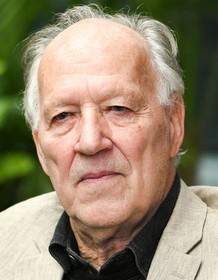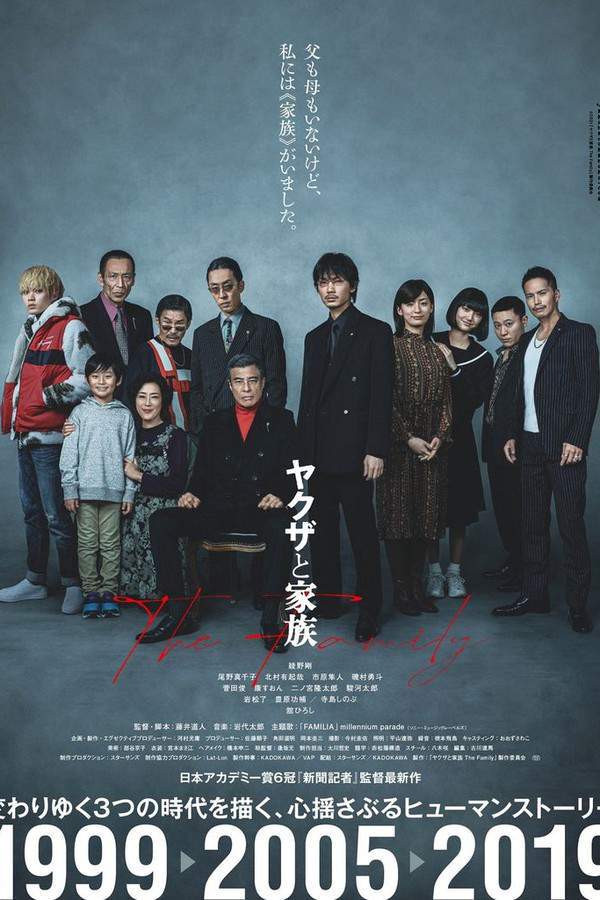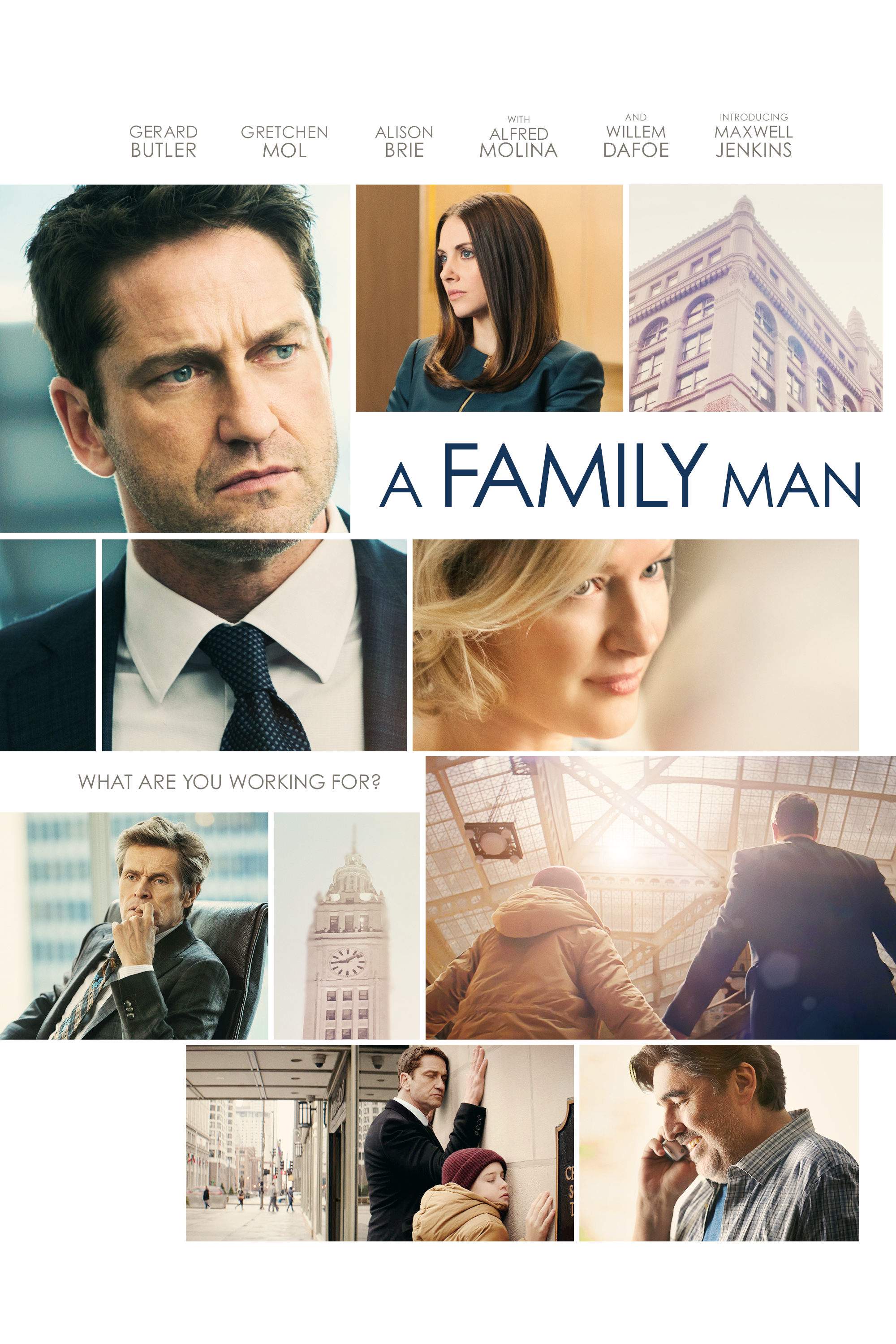Family Romance, LLC 2020

A young girl yearning for a father figure turns to a peculiar company that specializes in fulfilling such desires. Family Romance, LLC provides actors to simulate familial relationships, and a man is hired to portray the role of a missing father. As he assumes this unexpected role, the boundaries between acting and genuine connection become increasingly blurred, exploring the complexities of fabricated relationships and the human need for belonging.
Does Family Romance, LLC have end credit scenes?
No!
Family Romance, LLC does not have end credit scenes. You can leave when the credits roll.
Meet the Full Cast and Actors of Family Romance, LLC
Explore the complete cast of Family Romance, LLC, including both lead and supporting actors. Learn who plays each character, discover their past roles and achievements, and find out what makes this ensemble cast stand out in the world of film and television.
External Links and Streaming Options
Discover where to watch Family Romance, LLC online, including streaming platforms, rental options, and official sources. Compare reviews, ratings, and in-depth movie information across sites like IMDb, TMDb, Wikipedia or Rotten Tomatoes.
Ratings and Reviews for Family Romance, LLC
See how Family Romance, LLC is rated across major platforms like IMDb, Metacritic, and TMDb. Compare audience scores and critic reviews to understand where Family Romance, LLC stands among top-rated movies in its genre.

The Movie Echo Score
Family Romance, LLC excels in presenting an unsettling and thought-provoking blend of documentary and fiction under Herzog’s direction. Critics highlight its compelling structure and timely exploration of social distancing’s impact on human connection, while noting occasional underdevelopment of larger thematic questions. Audience feedback points to a deliberate pace that fosters reflection but may limit emotional engagement for some viewers. Overall, the film offers a distinctive and nuanced meditation on intimacy and artifice, resulting in a memorable but occasionally uneven experience.
The Movie Echo Score Breakdown for Family Romance, LLC

Art & Craft
In terms of art and craft, the film demonstrates strong directorial vision and inventive production design. Reviews praise its unsettling atmosphere and precise editing that sustains a scrappy, fly-on-the-wall aesthetic. Cinematography is frequently described as enthralling and visually cohesive, reinforcing the film’s meta-doc style. These formal strengths combine to deliver a compelling visual study of staged reality.

Character & Emotion
When it comes to character depth and emotion, the film yields mixed results. Observations note underdeveloped emotional conflict and limited empathy in the central performance, leaving some interactions feeling distant. While a striking final image suggests deeper resonance, the overall portrayal of interpersonal dynamics remains somewhat undercooked. Net effect is a restrained emotional engagement.

Story & Flow
In terms of story and flow, the narrative strikes an original balance between documentary and fiction. Critics find the pacing measured and engaging when exploring the uncanny valley of staged relationships, yet some note occasional lapses in thematic depth and coherence. This blend of inventive structure and uneven development yields a moderately engaging but imperfect experience.

Sensory Experience
When evaluating sensory experience, the film offers a subtle soundscape and cohesive visual style. The absence of an overt soundtrack draws attention to ambient sound design and the deliberate restraint in audio presentation. Visually, the cinematography’s understated palette complements the formal deconstruction of genre conventions. The result is an immersive yet restrained sensory environment.

Rewatch Factor
In terms of rewatch value, the film’s unique premise and formal play invite repeated viewings. Observers appreciate the subtle shifts in tone and the probing of human connection that become more apparent upon reflection. However, the restrained emotional payoff and uneven thematic exploration may limit its appeal on subsequent viewings. Overall, rewatch engagement remains moderate.

68
Metascore
5.8
User Score


74%
TOMATOMETER

71%
User Score

6.7 /10
IMDb Rating

63
%
User Score

3.4
From 29 fan ratings
Take the Ultimate Family Romance, LLC Movie Quiz
Challenge your knowledge of Family Romance, LLC with this fun and interactive movie quiz. Test yourself on key plot points, iconic characters, hidden details, and memorable moments to see how well you really know the film.
Family Romance, LLC Quiz: Test your knowledge about the movie Family Romance, LLC and its themes of identity and reality.
What does Yuichi Ishii's company, Family Romance, LLC, specialize in?
Rental of family members and friends
Providing psychological counseling
Offering entertainment services
Real estate management
Show hint
Full Plot Summary and Ending Explained for Family Romance, LLC
Read the complete plot summary of Family Romance, LLC, including all major events, twists, and the full ending explained in detail. Explore key characters, themes, hidden meanings, and everything you need to understand the story from beginning to end.
In the intriguing drama of Family Romance, we are introduced to Yuichi Ishii, the heart and soul behind a unique rental service that fills voids in people’s lives by providing actors to play roles such as husbands, friends, and other essential social figures. This venture, while seemingly unconventional, seeks to address the emotional struggles many face, giving them a semblance of connection and comfort.
At the film’s beginning, Yuichi is tasked with an emotional role; he pretends to be the father of 12-year-old Mahiro. Mahiro, grappling with the absence of any real memories of her father, finds herself unsure and distant from Yuichi initially. However, as time passes and Yuichi invests effort into getting to know her, Mahiro gradually opens up, allowing him to forge a bond that becomes more genuine. His presence brings her a sense of security she has longed for, while he simultaneously aims to protect her cherished secrets and advocate for her autonomy.
Throughout the course of their interactions, we witness Yuichi juggling his professional commitments with his emerging personal relationship with Mahiro. His willingness to engage with clients without judgment showcases a profound understanding of their unique situations. In a poignant exploration of the blurred lines between performance and reality, he visits a hotel where robots perform mundane tasks, prompting him to reflect on his life’s intricacies. He even confides in a friend about his bizarre dreams involving actors performing harakiri, raising questions about authenticity and identity.
As their story unfolds, Yuichi finds himself accompanying Mahiro’s mother on a visit to an oracle, where she expresses gratitude for his friendship. This statement, however, brings about a wave of discomfort for Yuichi, pushing him to confront the deeper implications of their arrangement. His subsequent exploration into the darker aspects of life leads him to a funeral home, where he inquires about hiring actors for a somber but necessary service.
The emotional stakes escalate when Mahiro reveals to Yuichi her feelings of affection towards him and her desire to build weekends of shared experiences as a father-daughter duo. Faced with this new revelation, Yuichi understands that their contract has become too complicated and must come to an end. Despite Mahiro’s mother’s invitation for him to move in, Yuichi declines, citing that they must disengage, all while suggesting she consider renting a funeral for her imaginary father — a heartbreaking metaphor for the relationships they have cultivated.
In a poignant scene towards the close of the film, Yuichi seeks solace with a friend, who reassures him that the services of Family Romance are valuable and impactful. Nevertheless, doubt lingers in Yuichi’s mind as he reflects on his own familial ties and the potential of them being mere performances, filled with deceitful emotions.
The film culminates with Yuichi returning to his residence, where the echoes of chatter and the sight of children’s hands pressing against the frosted glass ignite a profound sense of longing and trepidation within him. Opting to retreat into the shadows, he sits next to the door, contemplating the nature of his connections and the haunting solitude that follows him, leaving the viewer to ponder the complexities of human relationships in a world where authenticity often blurs with performance.
Uncover the Details: Timeline, Characters, Themes, and Beyond!

Coming soon on iOS and Android
The Plot Explained Mobile App
From blockbusters to hidden gems — dive into movie stories anytime, anywhere. Save your favorites, discover plots faster, and never miss a twist again.
Sign up to be the first to know when we launch. Your email stays private — always.
Watch Trailers, Clips & Behind-the-Scenes for Family Romance, LLC
Watch official trailers, exclusive clips, cast interviews, and behind-the-scenes footage from Family Romance, LLC. Dive deeper into the making of the film, its standout moments, and key production insights.
Family Romance, LLC Themes and Keywords
Discover the central themes, ideas, and keywords that define the movie’s story, tone, and message. Analyze the film’s deeper meanings, genre influences, and recurring concepts.
Family Romance, LLC Other Names and Titles
Explore the various alternative titles, translations, and other names used for Family Romance, LLC across different regions and languages. Understand how the film is marketed and recognized worldwide.
Similar Movies To Family Romance, LLC You Should Know About
Browse a curated list of movies similar in genre, tone, characters, or story structure. Discover new titles like the one you're watching, perfect for fans of related plots, vibes, or cinematic styles.
Quick Links: Summary, Cast, Ratings, More

What's After the Movie?
Not sure whether to stay after the credits? Find out!
Explore Our Movie Platform
New Movie Releases (2025)
Famous Movie Actors
Top Film Production Studios
Movie Plot Summaries & Endings
Major Movie Awards & Winners
Best Concert Films & Music Documentaries
Movie Collections and Curated Lists
© 2025 What's After the Movie. All rights reserved.































